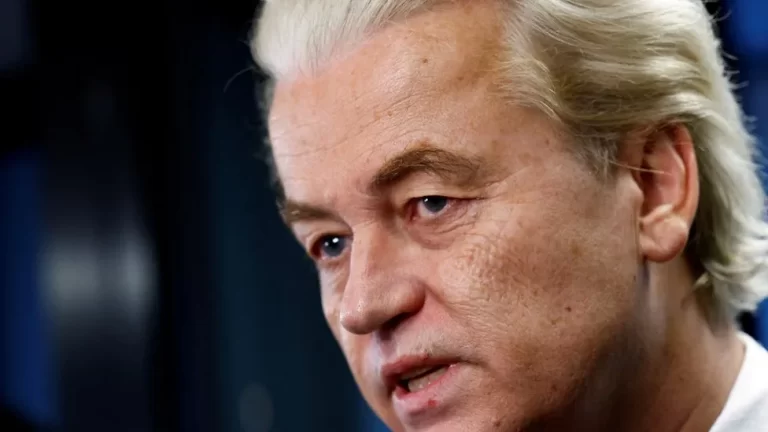A major Dutch political party has said it will not enter talks with anti-Islam leader Geert Wilders about forming a coalition cabinet for now.
The New Social Contract party said Mr Wilders's election manifesto risked breaching the Dutch constitution.
Mr Wilders's Freedom party (PVV) last week shocked critics by winning a dramatic general election victory but failed to secure a majority. To become prime minister, he needs the backing of other parties.
The Netherlands, a founding member of what is now the EU, has the bloc's fifth-largest economy. The New Social Contract (NSC) party's leader, Pieter Omtzigt, said he had concerns around MPs and ministers “swearing allegiance to the constitution” if the PVV's policies would break it anyway.
“All in all, the NSC faction now sees no basis for starting negotiations with the PVV about a majority government or a minority government,” he stated.
“We have consistently stated in recent months that we will not make any concessions to these principles,” Mr Omtzigt said. “Here we draw a hard line.” The NSC is the only major party that could have signed up for a cabinet with the PVV.
Without Mr Omtzigt on board, Mr Wilders faces the prospect of trying to form a hard-right minority coalition, supported by the conservative People's Party for Freedom and Democracy (VVD) which has not ruled out collaborating with him.
Mr Wilders – known for his anti-Islam rhetoric – used his election campaign to promote measures such as banning mosques and Islamic schools. But, as has been pointed out time and again, this would infringe on citizens' constitutional right to freely practise their religion.
In the run-up to the vote, and following his win, Mr Wilders said he was willing to negotiate and compromise with other parties to become prime minister. He went as far as saying he would put on hold his promise to ban the Koran.
This left some party leaders confused, though.
Mr Omtzigt said that before his party could consider coalition talks, the PVV had to “indicate unequivocally which controversial points from its election manifesto are no longer current”. He also predicted “many political obstacles” to the two parties reaching an agreement – citing Mr Wilders's desire to hold a “Nexit” referendum to leave the EU as one example.
Mr Wilders has not yet commented on the remarks.
— CutC by bbc.com


